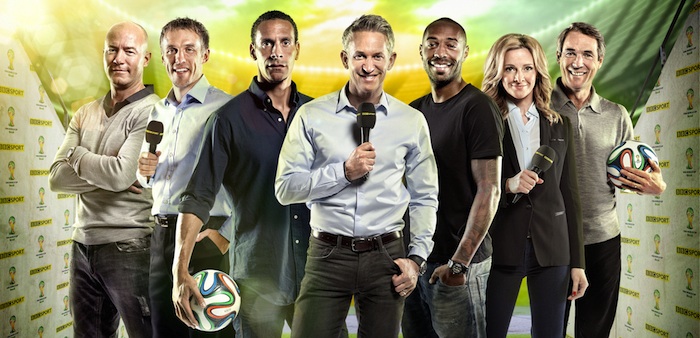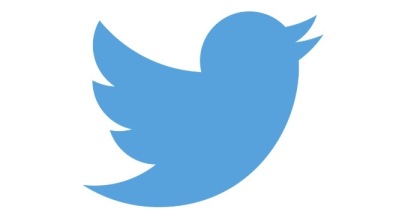Match of Yesterday: Can the Premier League really stop people tweeting football clips on Vine?
David Farnor | On 23, Aug 2014
Match of the Day turns 50 years old this weekend, celebrating five decades of selecting clips, sharing them with audiences and commenting on them. After tonight’s programme finishes, it will not be on BBC iPlayer.
Why? Because it never has been: the online rights do not extend that far. The Beeb has a licence to show Match of the Day – even to broadcast a repeat – but not to offer Premier League highlights on-demand.
50 years after the show started, though, the relationship between sports and the media has changed. Where before people would wait until Match of the Day, now they select clips, share and comment themselves.
One of the most popular ways to do this is, inevitably, through social media. Video links and GIFs are shared constantly on Twitter – as well as, crucially, through Vine.
The problem is that the Premier League doesn’t like people sharing these video clips from football matches on the TV: it declared last week that the practice is illegal and that they’re clamping down on it.
Dan Johnson, director of communications, told BBC’s Newsbeat: “You can understand that fans see something, they can capture it, they can share it, but ultimately it is against the law. It’s a breach of copyright and we would discourage fans from doing it.”
Aye, there’s the rub. Twitter and TV have become increasingly intertwined: the social media service has positioned itself as the go-to advertising destination for broadcasters or those looking to target TV audiences. People see something on telly; they tweet about it. It has become the natural social soundtrack to the goggle-box. And when others see those tweets about a TV series, they tend to tune in too.
That extends to sports too. The record for the highest number of tweets during a TV event was broken during the World Cup this year, while over 5.5 million football-related tweets were sent in the opening weekend of the Premier League alone. And Twitter’s own app, Vine, is at the heart of it, making it easy to capture six-second clips off the TV and publish them online.
Accounts such as @FootballVines, for example, which are dedicated to tweeting Vines of goals and other highlights, have more than half a million followers.
All of this is bad news for the Premier League – and, more specifically, The Sun. While live TV rights for matches are divvied up between Sky Sports and BT Sport for a staggering total of £3 billion, The Sun has forked out its own pay package for the online rights to the games. Every footballing Vine, then, is stealing their business.
So what’s the plan? Can the Premier League really stop people tweeting football clips on Vine?
“We’re developing technologies like gif crawlers, Vine crawlers, working with Twitter to look to curtail this kind of activity,” says Johnson. “I know it sounds as if we’re killjoys but we have to protect our intellectual property.”
Intellectual property is becoming more and more important in the era of VOD. With the Internet accounting for a growing portion of our video watching, illegal means are as accessible legal means, which means that copyright infringement is widespread – studies have previously suggested that people within the film industry take part in tormenting, despite it effectively undermining their own business.
For sports, Vine is an instantaneous way to see or share something and that’s what people expect in an on-demand age: things to be available on-demand. Right away. If legal services are not quick enough, audiences have shown that they will choose the other method. It’s telling that the Premier League are only now “developing” ways to crawl Vines – the traditional system of rights, pay walls and exclusivity simply doesn’t think in the same way that modern consumers do.
Twitter is well aware of this, perhaps painfully so, if they did not think that their own video platform would lead to such uses. If Twitter is to succeed in monetising its service and becoming the social hub for TV (both with advertisers and the public), it must find a solution.
Indeed, the company recently acquired a company that is designed to just what they need: share clips from live TV. The company, SnappyTV, is based in the US. A similar company exists in the UK: Grabyo, founded only last year, which has already signed deals with broadcasters and rights holders, from the UEFA Champions League and QVC to Sky Sports transfer deadline day, the FIFA World Cup, ITV, Channel 5 and – perhaps most prominently so far – the Wimbledon tennis championships. (It’s no coincidence that most of their clients are related to sport, where demand is strongest.)
CEO Gareth Capon told VOD Professional at the time of Twitter’s acquisition: “We’ve seen first-hand how powerful the real-time video format is for rights holders and advertisers so we’re not surprised that Twitter is expanding its offering through the acquisition of SnappyTV. We’ve been busy ramping up our media partnerships but we expect the acquisition to contribute to further awareness and opportunity.”
While Twitter continues to look at commercial ways to include video sharing as part of its platform, The Sun remains adamant in its move to stop Vines.
The Sun currently tweets about football highlights, but it invites people to download their app or sign up their site to access them: a far less immediate or accessible way to win an audience over.
Dean Scoggins, the paper’s deputy sports editor, told the BBC: “It’s important to underline that it’s illegal to do this, we’ve obviously signed a very big deal with the Premier League to be a rights holder and to show it, we’ve got legal teams talking with them about what we can do.”
It is important for the Premier League, of course, to protect its own content too – if not, it could soon be out of a hefty income.
Adam Rendle, a copyright specialist at Taylor Wessing, spoke to the Guardian recently, giving an insight into just how tricky tackling social media infringement is: “If it is just you or I on a Saturday afternoon doing it every now and again, I think the tactic there would be to inform Twitter or Vine and get it taken down on an isolated basis.
“If there are serial “viners” who are setting up accounts to repeatedly do this every time there is a high-profile match and they have got thousands of followers so it’s becoming an unofficial service of goals, they might seek to get the account blocked.”
One account holder told the newspaper that “at no point whatsoever” do they upload Vines themselves, passing the buck onto the users who actually record and share clips – typical of the way the Internet works, with people assuming anonymity or immunity on some level. After all, IP addresses and individual Vine accounts are traceable, but what big company wants to go down that route for every single person?
This is a big part of the issue: rights holding in the online arena is difficult to enforce; not just legally, but practically.
According to the Guardian, Twitter received a total of 9,199 copyright takedown notices in the first half of 2014 – a rise of 38 per cent year-on-year, with the material in question taken down in just over three-quarters of cases.
Can the Premier League ever successfully manage to clamp down on football Vines? Whether through SnappyTV, Grabyo or other means, until the system can provide a high quality alternative – that offers better visuals at the same speed – the battle between rights holders and Vine holders will remain a heated draw.
Match of the Day turns 50 years old this weekend. After tonight’s programme finishes, it will not be on BBC iPlayer.




















